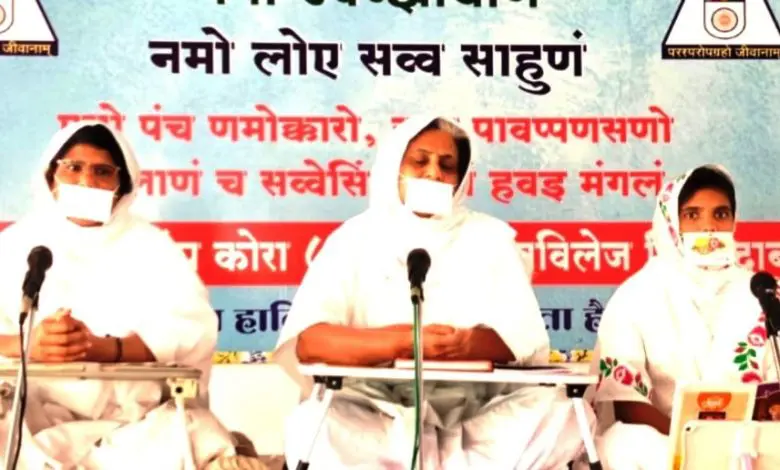
Hyderabad, If there is no time for self-reflection, then there will be no opportunity to attain salvation. It is a simple truth that salvation requires renunciation, wealth, charity, and time. To obtain the ticket to salvation, one must dedicate time, charity, body, and mind. These thoughts were expressed during a religious assembly organized by the Shri Jain Shravak Sangh Kora at Shri Anand Jain Bhavan Kora in Sikh Cantonment, where revered Rajmatishriji M.Sa. Rajul Adi Thana 3 spoke.
According to a press release, the revered speaker stated that listening to Jinvani (divine teachings) with a pure mind leads to the shedding of karma. The soul attains salvation quickly. To achieve salvation, one must listen to Jinvani. Salvation cannot be attained by sitting at home. Without the company of saints, salvation is unattainable. Listening to the words of the Lord leads to the destination of salvation. To attain salvation, one must endure physical austerity. M.Sa. emphasized that before engaging in spiritual practice, one must first become a seeker.
Today, people have no time for spiritual contemplation, but they find time for parties and celebrations. Decide where you want to go. Human life, noble surroundings, good lineage, and time are blessings, as is the opportunity to hear Jinvani—so avoid negligence and laziness. M.Sa. said that earning wealth is not wrong, but its proper use is essential. Among the seven pleasures of life, bodily comfort comes first, followed by the joy of wealth.

The Proper Use of Wealth and the Importance of Hunger in Life
If the body is healthy, everything feels good. Accumulating wealth is also necessary. With wealth, everything is possible—youth is maintained, while without it, old age sets in. Desire is not inherently bad, but knowledge of how to use wealth wisely is crucial. Today, everything requires money, but it should be spent according to necessity. The first essential for the body is food, which is obtained through money. If there were no hunger, no one would stretch their hands before others. Hunger brings suffering—life revolves around it.
One must earn money to satisfy hunger. M.Sa. said that hunger affects the stomach, and spiritual practices cannot be performed on an empty stomach. When the body is nourished, one is ready for penance






